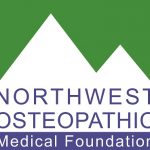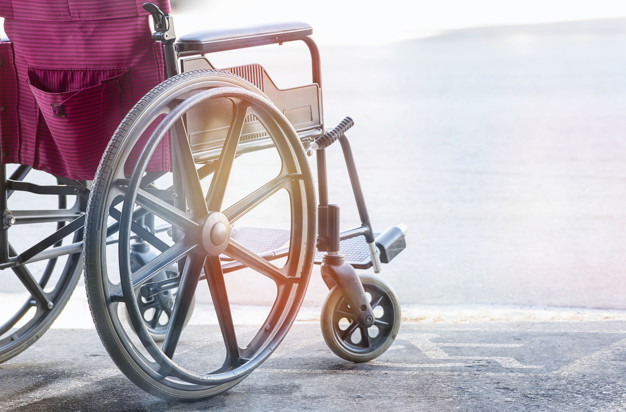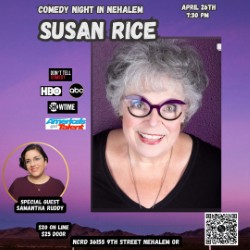
By Linda Tate, Communications Director, NW Osteopathic Medical Foundation
I’m happy to be back from my medical leave and among our readers again. I missed you! I wanted to tell you about my experience while I was gone, and encourage you to think outside the box a bit. We all know about handicapped placards, and designated stalls for those in wheelchairs, but there is so much more about being in a chair that you don’t know about.
As the leaves begin to fall, and the harvest is collected from the field, I sit at my desk and ponder my return from my medical leave. While my medical issue was nothing more than simple ankle surgery, it put me into a state of total bedrest and then reliant on a wheelchair for several weeks. Weeks turned into months, physical therapy ensued, and my recovery started to feel as if it would never happen. But like the turning of the seasons, most things tend to pass.
What feels like it may never end, suddenly ends, and we are faced with new beginnings, new normals, and a new outlook on life.
I have a new found respect for people who rely on wheelchairs to get around in this world. Trust me, it isn’t easy. Handicapped accessible doesn’t necessarily mean “easy to maneuver” and I found bathrooms to be the biggest challenge of them all. Automatic doors that didn’t stay open long enough for me to get inside, and stalls that weren’t large enough to accommodate my chair (forcing me to leave the door open with my chair at arms length). Humiliation is one word that comes to mind as I reflect.
Airports that promise to help you get into the plane, but don’t let you know that you will be strapped down on a 12 inch wide chair, with your arms restrained at your side as they haul you up the ramp in front of all the other restless passengers. Burden is one word that comes to mind as I reflect.
Deplaning on the other end of your flight and being told that the person with your chair didn’t show up, so “do the best you can”, and hopping on one leg clear to the baggage area, well, frustration is one word that comes to mind as I reflect.
Wheeling myself up and down the aisles in the store, not being able to reach the shelves above my head, depending on the compassion of observers to help me out, all the while wondering why these chairs don’t move up and down? Not being able to see above the counter when checking out, or worse yet, having the clerk talk over my head to my husband as if I don’t exist. Demeaning is a word that comes to mind as I reflect.
My ankle may have been broken, but my mind was not, and I was forced to process a lot of truths that didn’t seem very true to me. Handicapped accessible doesn’t mean what you think it means. In fact, it means very little. The legal truth, is that the bar is set very low for accommodations, and the literal truth is that bar is way too low. Life shouldn’t be that difficult. Not for anyone. Doors that are too heavy to open, stalls too small to accommodate, practices that are too humiliating, and levels of understanding that are much too primitive.
At one point, probably my lowest, I was attempting to get through TSA at the airport. I was in the PreCheck line, you know the one…where you should go through faster than the “other” line? Well, when you are in a chair, not so much. They literally made me stand up on a non-weight bearing leg while they ran a wand around my backside and private areas. They then dusted my chair for explosive residue and ran their hands over my torso for good measure. No privacy. No compassion. Oh, and no bomb, by the way…
We like to think that our ways of doing things have come so very far. We’ve educated our children not to stare, we’ve learned that yelling at someone in a chair only helps if they are hearing impaired, and we’ve worked at making doors wide enough so chairs can get through them, but I’m here to tell you, that’s just simply not enough.
A handicapped placard does one no good if the ramp is made out of cobblestones with big gaps between the stones. A trip to the beach isn’t any fun if there’s not a ramp down to the water so you can stick your toes in and feel the sand under your feet. Going to a movie or a concert is no fun if you have to sit in a designated chair section while everyone else sits in a “normal” seat.
Being dependent on others is hard enough, especially when you are used to being independent. But being in a situation where not only are you dependent on others, but your whole world gets demeaned as a result of this dependence is absolutely unconscionable. I would encourage you to try moving around in this world for one day in a wheelchair, especially if you work in a building that says that it accommodates. You will soon see what I’m talking about. It doesn’t take long.
In my last career, working in social services, I worked with many clients who were not only in wheelchairs, but were non-verbal as well. Can you imagine? One day, I read a book called, “Ghost Boy”, by Martin Pistorius, and it changed my understanding of my work, and as I communicated with my non-verbal clients, I began to see more…more than just their screeches, more than just their spitting, biting, and scratching…I began to see souls. Their eyes would tell me what their needs were, and as my career flourished, I became one with the ones I was honored to care for.
I feel compelled to give you this video to watch. I may be back to work, walking, and getting stronger, but my time in that wheelchair has forever changed me. My doctor said, “your journey is almost over” and I thought to myself, “actually, my journey has just begun.”

Please take 15 minutes and watch this incredible speaker talk about his journey and then, I suggest you go borrow a wheelchair and spend a day in it. You won’t be sorry.
Thank you for reading us. We do appreciate you…see you next time.

For more information about NWOMF see their website at www.nwosteo.org, or David Tate, Executive Director at tate@nwosteo.org or Linda Tate, Communications Director at linda@nwosteo.org, or call 503.263.7878
// The Northwest Osteopathic Medical Foundation is a public charity committed to Advancing Wellness through the Osteopathic Approach. As a charity, we do not represent any medical school, medical association, medical practice, or individual physician.
This blog should not be considered to be medical advice. Your personal health is best discussed one-on-one with your personal physician. Rather, this blog is intended to highlight the distinctive philosophy and practice of osteopathic medicine as expressed by the author and does not necessarily represent the opinion of the Northwest Osteopathic Medical Foundation, or other Osteopathic physicians. The information and opinions are solely those of the author.


